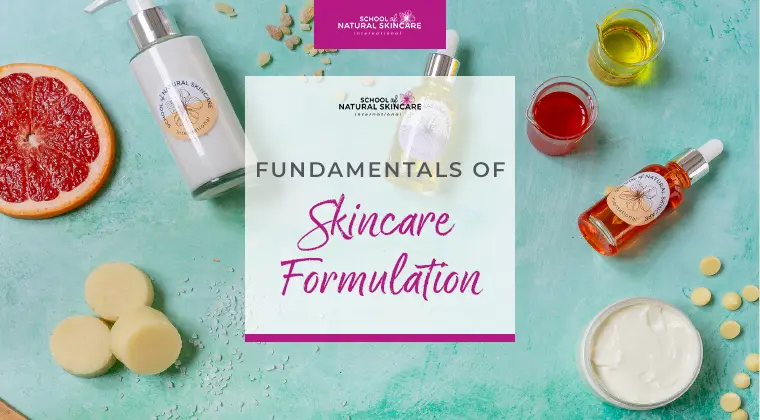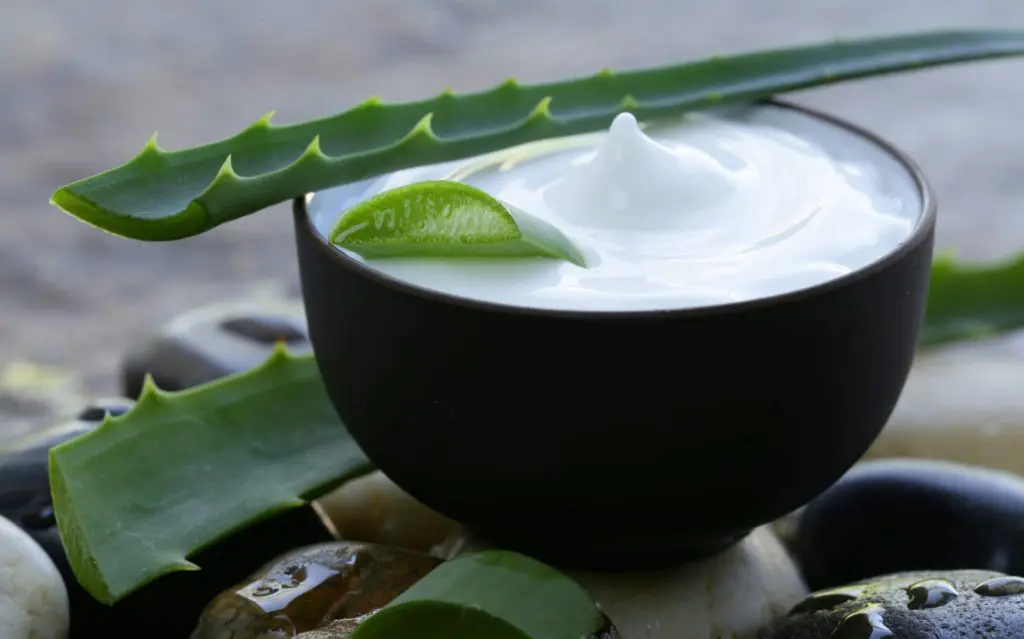Today we’re sharing a very special natural skincare ingredient and an essential element in some of our favourite recipes – Rosehip Oil INCI: Rosa Canina (Rose hip) seed oil
What makes this ingredient so special is the way that it can help to repair and regenerate damaged skin!
It’s a fantastic oil for burns, acne, eczema and psoriasis, damage from radiation therapy and can help alleviate the immediate signs of aging skin.
To start with – if you’re wondering – a rosehip is the fruit or seed pod of a species of wild rose called Rosa Rubiginosa, also known as Sweet Briar.

There are a number of ways to extract the oil from rosehips, but the cold press method retains more of the most important essential constituent elements, so that’s what we look for when we source it ourselves.
Now a lot of people might not like the idea of putting an oil on their face worrying that it will make their skin oily, but with rosehip oil, there’s no need to worry about that.
Rosehip is known as a “dry” oil – that’s because it’s light, and is absorbed into the skin very quickly, leaving it feeling dry and smooth.
It’s suitable for all skin types but especially mature, sensitive or damaged skin can really benefit from Rosehip oil. If you’d like to find out more about how to find the right carrier oil for your skin, check out this article, Carrier Oils: Finding the right carrier oil for your skin.
What makes Rosehip Oil so special?
Rosehip oil has very high levels of the important essential fatty acids, including Omega 3, Omega 6 which are vitally important to help our skin heal.
Rosehip also contains a special type of Vitamin A called tretinoin which also helps to repair damaged skin.
Tretinoin is great for the treatment of scars, to alleviate acne, and to reduce wrinkles and improve the signs of damage to the skin from the sun. It’s also shown promise as a treatment for pregnancy stretch marks.
On top of that, it softens and moisturizes skin, and helps smooth wrinkles … which is why we love it!

What is rosehip oil used for?
Rosehip oil can be used in many skincare formulations including:
Body and facial cleansers.
Body and facial moisturizers.
Body and facial serums.
To find out more about body serums, check out our article “Body serums: what they are and why to use them”
You can use Rosehip in any oil-based natural skincare product, but because it is more of a specialist ingredient, and more expensive than many other carrier oils, you might want to use it in products where just a small amount of oil is required, for example creams and lotions, serums and cleansers.
And rather than using it for “multi-purpose” products or skin preparations, you can use less in more targeted and high-end applications like eye serums, face serums, face creams or lotions or to help with a specific area of skin concern, especially blemishes, dark spots, acne, burns, inflammation and irritation.
Where can you buy rosehip oil?
Fortunately, Rosehip is readily available and easy to obtain and the quality you get from reputable suppliers is usually extremely good. To identify some good suppliers, check out our recommended supplier list here
How you can start using rosehip in your own natural skincare products
If it is a library of natural skincare recipes, complete with “how-to” instructions and video demonstrations, that will enable you to make safe, stable and effective products for a fraction of the cost of shop bought brands that you are after, look no further than our Certificate in Making Natural Skincare Products online course!
Here you’ll learn the practical art of making your own products using over 120+ recipes that use only the finest natural and organic ingredients, including rosehip! This course is designed to give you the essential foundation you need to get you up and running.
If you want to develop the skill to create your own natural skincare products from scratch rather than relying entirely on other people’s recipes, then you’ll want to enroll on our Diploma in Natural Skincare Formulation.
Here we’ll show you to formulate like a professional! You’ll design your own products with a target customer in mind and tailor them for specific skin types, needs and preferences. You’ll learn how to deliberately select ingredients (like rosehip oil) and create something unique and effective.
We use Rosehip Oil in our Wild Rose Anti-aging Facial Serum recipe which you can find here It’s really simple and utterly divine! It contains just 7 natural ingredients that are easily affordable and readily available and it is really simple to make too!
Free Online Organic Skincare Formulation Course
Fundamentals of Skincare Formulation

Learn the essentials of skincare formulation with our FREE course!
If you’re confused by all the misleading information out there, we’re here to guide you. Learn how to create natural and organic products confidently, using industry best practices, under the guidance of professional cosmetic scientists.
Exclusive for our newsletter subscribers. Sign up now.
We look after your data in accordance with our privacy policy.
What you’ll learn:
- Formulation Foundations: The basics of cosmetic chemistry and skincare formulation.
- Bodycare: Make a shea-butter-rich body moisturizer with our pro formula.
- Facial Skincare: Rejuvenate your skin with our two facial oil formulas.
- Creams & Lotions: Create shelf-stable moisturizers using our tried-and-tested formula.
- Natural Ingredients: Understand the key natural and organic ingredients used in formulations.
Exclusive for our newsletter subscribers. Sign up now and start formulating your own natural products today!
Loved learning about rosehip oil? Pin this to make sure you remember!

1) Zlatanov, M. D. (1999). Lipid composition of Bulgarian chokeberry, black currant and rose hip seed oils. Journal of the Science of Food and Agriculture, 79(12), 1620-1624.
3) Korgavkar, K., & Wang, F. (2015). Stretch marks during pregnancy: a review of topical prevention. British Journal of Dermatology, 172(3), 606-615.
4) Kligman, A. M., Grove, G. L., Hirose, R., & Leyden, J. J. (1986). Topical tretinoin for photoaged skin. Journal of the American Academy of Dermatology, 15(4), 836-859.
5) Cunliffe, W. J., Poncet, M., Loesche, C., & Verschoore, M. (1998). A comparison of the efficacy and tolerability of adapalene 0.1% gel versus tretinoin 0.025% gel in patients with acne vulgaris: a meta-analysis of five randomized trials.




